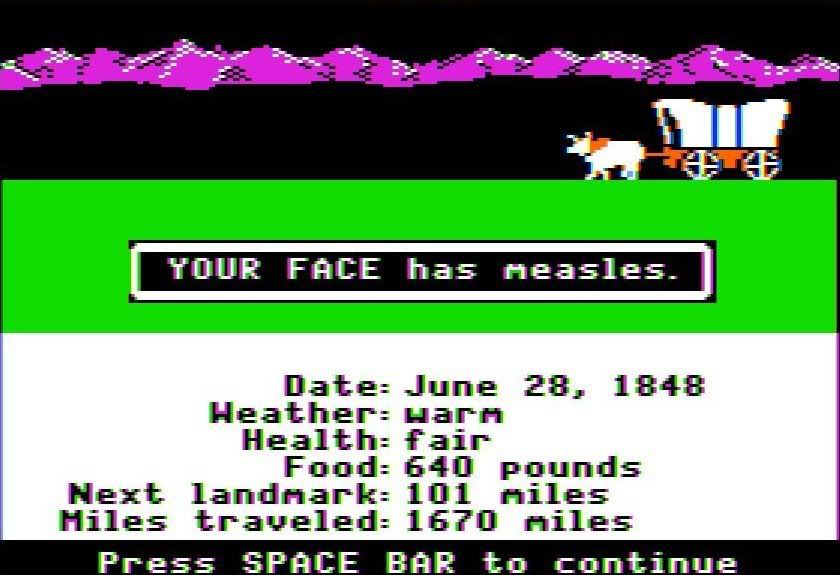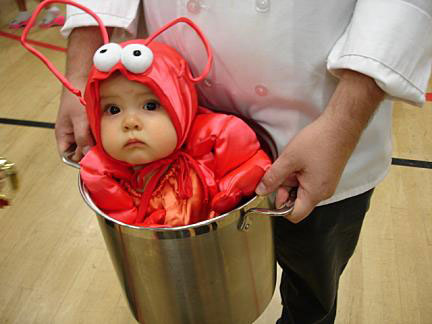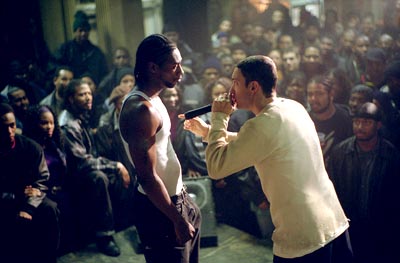Back and angy as ever, Jess attempts to unseat Julia as the premiere guest author with this, his latest rant. Enjoy.-----------------------------------------------------------------------------------
The recent revival of this blog and its stream-of-consciousness ranting affords a golden opportunity to similarly revitalize my own journalistic career – since this medicine thing may soon come to a screeching halt. I’m currently on pediatrics. I could simply refer you to
Kevin’s elegant artistry to depict my feelings about the rotation, but that would ruin the cathartic nature of this medium. I’ll take a more positive approach than my colleague did with childbirthing – I’ll give one positive before launching into my top pediatric peeves.
The Good: A lot of kids are cute. When they’re in a good mood, they’re friendly and laugh and want to see how your tools work and it gives you that warm fuzzy/good feeling that you can only get from the sound of a child’s laughter – before passing them off to the demonized shot-giving nurse (which, by the way, must be the worst job in the world). I genuinely enjoy kids in general so this works out well. But there’s a lot to hate in general, so let’s not delay:
1. The Vaccine Talk.
Every physician knows this one. For those of you unawares, let me break this down for you. We have, on one side, modern medicine and every doctor you’re likely to ever meet who contend that babies shouldn’t die. We have, on the other side, this guy. Now here’s the kicker: People believe Jim Carrey. To be fair, a “doctor” did originally perpetrate this bogus theory. One Andrew Wakefield proposed that MMR vaccine was related to a small subset of cases of autism via immunologic shenanigans. He then proceeded to present this and cause a panic which led to refusal of immunizations and then an outbreak of measles. Read that again. Of measles. Let’s get one thing clear: no one in the Western world should ever contract measles. The only time anyone should get measles is playing Oregon Trail.
 If only YOUR MOM had vaccinated you.
If only YOUR MOM had vaccinated you.Meanwhile, of course, autism didn’t miss a beat. Andrew Wakefield has now lost his medical license and practices homeopathic medicine in Texas. There are even new allegations that he
fudged his data – but by God, that doesn’t matter, because a lack of understanding of basic statistics or physiology is no reason you should listen to your “doctor” about vaccines, because he’s probably just brainwashed and doesn’t think for himself (I swear, people say this). And you’ll hear the same random half-baked logic:
“Too many shots these days,” “given too young,” “those diseases don’t exist anymore (AND WHY MIGHT THAT BE?!?!)”
It wouldn’t be so bad if these people listened to reason. Or at least attempted to listen to reason. The following is an almost word-for-word transcription of my preceptor’s attempt to convince someone to get their kid a meningitis vaccine:
“Here’s all the excellent and well-founded scientific reasons why your kid is way more likely to die from meningitis than from getting this very safe vaccine.”
“Yeah but I don’t give my kids shots until they’re 1 year old.”
“Why?”
“I just don’t. I’m convinced I know better than decades of data and scientific research and besides I can selfishly rely on herd immunity which, by the way, I undermine by not getting vaccinated.”
“…..Kay. But seriously, why?”
“I just don’t.”
You get the picture.
2. Schools waste doctors’ time.
Everyone has had this experience –little Johnny had a cough/cold/stubbed toe but, because he missed time from school, he requires a doctor’s note to allow him back. This means that little Johnny gets to wait in the office for 2 hours with all the bacon-lungers so that he can get a doctor to confirm that yes, in fact, he was coughing, and no this was not some elaborate falsehood perpetrated by the parent. But even if he wasn’t sick, he sure as hell is now. In which case, of course, he’ll have to come back and get a separate doctor’s note just so he can expose everyone to it. At what point did we stop believing parents when they say their child is ill? Congratulations, Principal Jones, you’ve once more saved the integrity of your pedagogical bureaucracy – but at what cost?
 At least they're NOT VACCINATED.
At least they're NOT VACCINATED.3. First-time parents possess no common sense.
This may represent a failing of our public education in some ways, but so many new parents seem to have no other option when their child is ill but to come to the ER in the middle of the night and/or demand to speak to the pediatrician on call. I understand that you can’t tell for sure how sick your 10-month-old child is. He can’t talk. But with a few tidbits of arcane medical knowledge, several ER visits could be avoided:
1) 99 degrees is never, under any circumstances, a fever. I don’t care that your baby usually runs 98.4 so it’s a little hot. Being asked to write a note justifying school or daycare absence for a temperature of 99.1F rings hollow. Pediatricians don’t get too concerned until 100.5F, so don’t bother them.
2) Babies are rashy. Please do not demand to speak to the on-call pediatrician because your child has one new red mark on their skin. It’s not cancer. It will likely be gone within a week without a single symptom. Go to bed.
3) Babies are loud. If your baby is crying, try feeding the baby. Try holding the baby. Try rocking, cuddling, or singing to the baby. (Do not ever shake or throw your baby). If these don’t work, does baby otherwise seem sick? If not, it’s probably not an emergency.
4) For God’s sake, triage nurses exist for a reason. Self-explanatory.
I enjoyed my time on peds, but as you can tell, there are more than a few things which could be more satisfying about the setup. I did almost entirely outpatient pediatrics, so I was mostly in clinic the entire time – which can be numbing on its worst days.





























